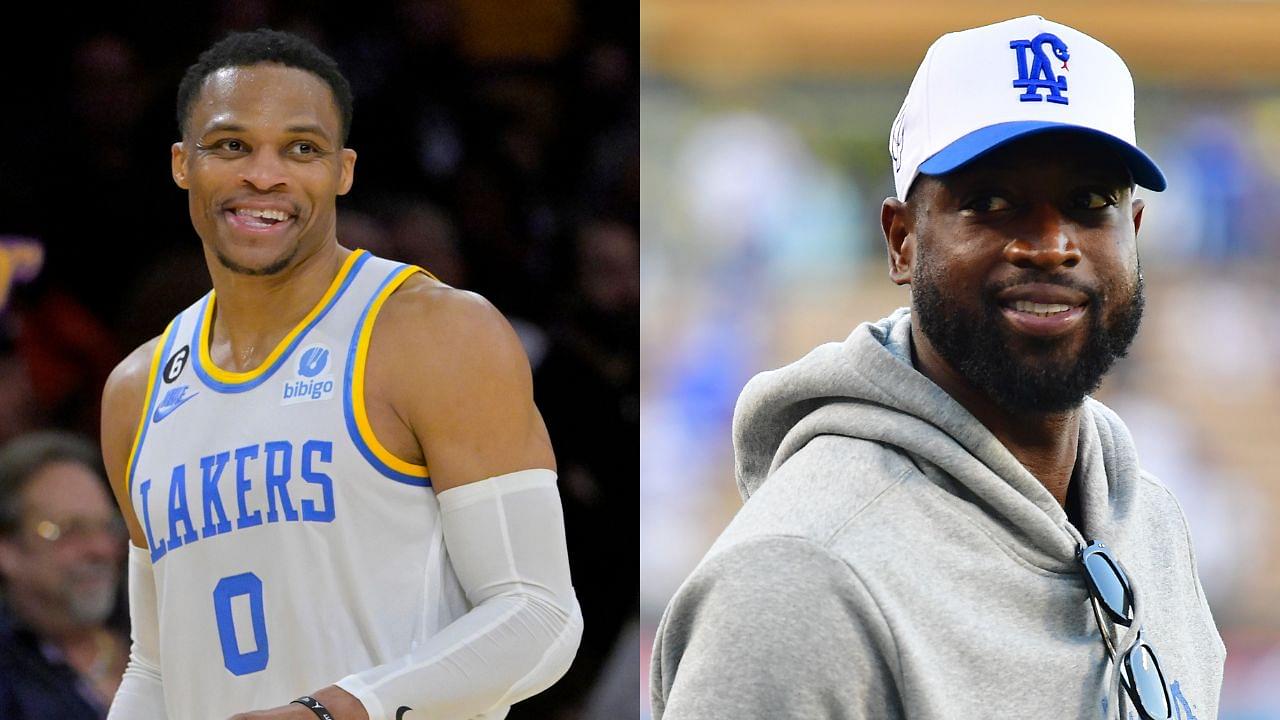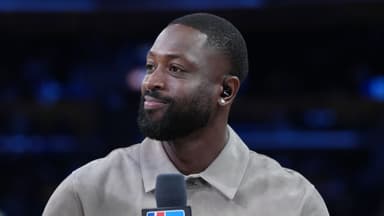Age can be a cruel factor that deteriorates an NBA career. Father time eventually catches up with everyone, but some feel it before others do. One such example from recent times is Mr. Triple Double, Russell Westbrook.
Advertisement
Since leaving the Thunder, Westbrook has endured quite a fall from grace. And a move to the Los Angeles Lakers and greater scrutiny made it a public matter of shame.
Also read: “The Word ‘Can’t’ Wasn’t in my Vocabulary”: When Russell Westbrook Preached his Parents’ Teachings
After an extremely disappointing first season, it appeared the Lakers had given up on Westbrook. Brodie and his huge $47 million salary were hung out for buyers in the trade market. However, the former MVP only attracted offers that didn’t quite match the Lakers’ requirements.
Everything seemed to point at another disastrous season. But, a change by rookie head coach Darwin Ham, changed everything. Ham decided to start Brodie off the bench and after initial protests, the project seems to be showing good results.
Westbrook wasn’t the first superstar to make such a move late in his career. Bill Walton, Manu Ginobili, and Dwyane Wade are a few who made such a transition work in the past. And Wade, in an interview with Sports Illustrated, enlightened the world about the mental requirements to make such a career transition.
How did Dwyane Wade describe the Sixth-Man experience?
After being the man at Miami for the longest time, Wade spent some time in a journeyman role in the league. At Cleveland, Wade was reunited with LeBron James and moved into a 6th man role after the starter experiment failed.
As someone who had gone through the sacrifice of his ego, Wade arguably knows better than most, about the Westbrook situation. And weighed in when asked about it by Sports Illustrated.
“Well, first, it’s a lot of things that come with that before you even get to Russ, right? When you talk about a player like Russell or myself who’s had the ball, who’s been responsible for 50-plus percent of their team’s points on a nightly basis, when this is who you become, this is who you identify with and this is who everyone expects you to be. And then everyone in the world is watching you get older, and they feel that it’s some kind of decline that you don’t necessarily maybe feel or see, but you know your game is not where it was when you’re 18. But you don’t see that massive decline that the world thinks they see. People don’t understand” described Wade of how the transition hits an athlete.
When the public starts to see the decline, there is often much clamor. The Flash, after multiple injuries, saw a decline in his physical conditioning. It was at such a point where he had lost that electric first step that Wade moved into the sixth-man role. Very a la Westbrook.
How did DWade feel about how Russell Westbrook has grown into the sixth-man role?
Wade observed how 5ft 3″ Westbrook had given up on his ego and adapted to the needs of the situation. The former Heat superstar talks about how modifying roles to situations is crucial.
“It’s about the situation. And Russ has now put himself in a better situation by coming off the bench. I’m glad that he’s got to this point where he sees that it’s not him, that it’s situational and that depending which one he’s in, he knows what role he needs to play” spoke Wade of the Russ situation at LA.
Wade rightly points out how criticism of Westbrook has also gone down with his acceptance of his limited role. Identifying the needs of a situation and adapting seems to have worked out well for Westbrook as it did for Wade.







